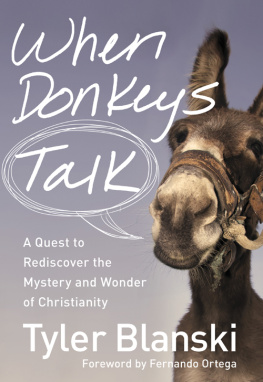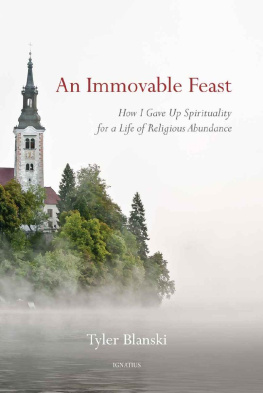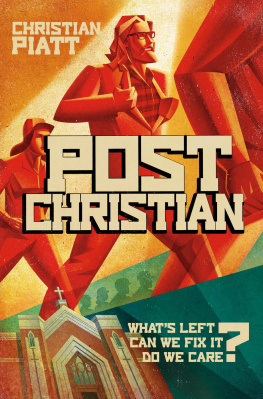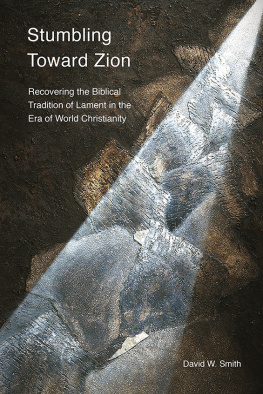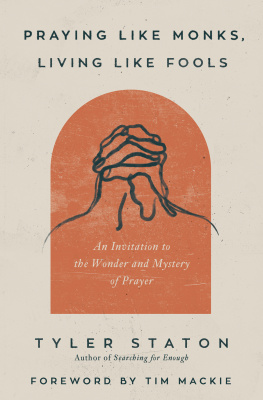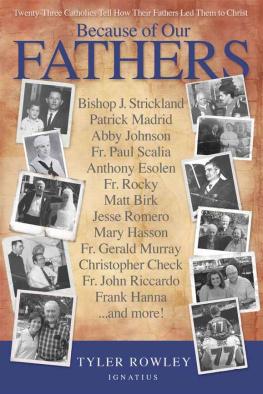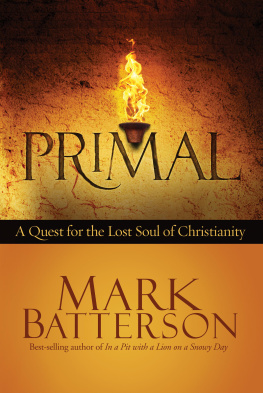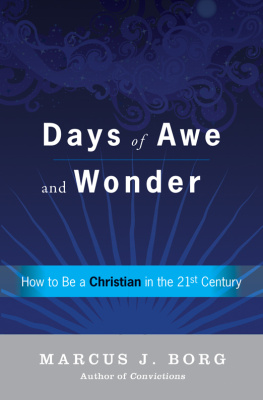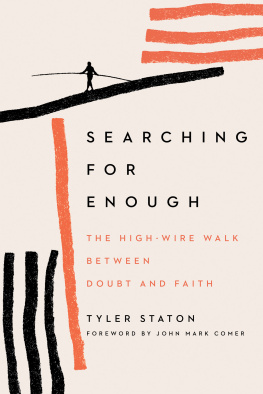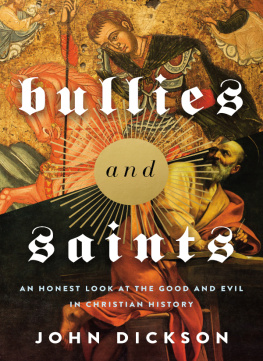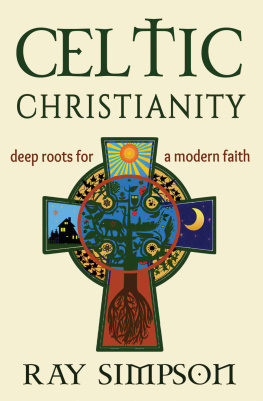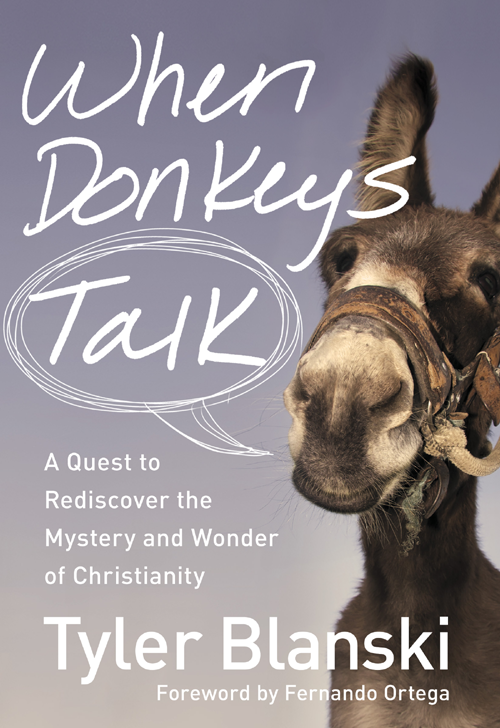could smash your small cosmos.
G. K. Chesterton, Orthodoxy
I would like to introduce Tyler Blanskis wonderful new book When Donkeys Talk by first telling a bit about my own family. Please have patience with this foreword. It will make sense in the end.
My grandfather, Juan Melquiades Ortega, died in 1991, just a couple months shy of his 102nd birthday. He was a Christian man whose quiet devotion to God found expression in the unlikely combination of gifts bestowed on him by the Creator farming, weaving, storytelling, and singing.
My grandfathers farm tied him to the earth its unpredictable seasons, the needs of his family, the phases of the moon.
His magnificent weavings (two of which belong to the Smithsonian Institution) were the products of slow, painstaking processes the shearing of sheep, the spinning of wool, vats of dye.
The stories my grandfather told us were about long-gone distant relatives who herded sheep in Colorado and Gypsies who camped at the edge of town in the 1930s, selling their wares potions and pots. My favorite story was about an old witch who could turn herself into a coyote. She tried to trick some cousins of mine who were on their way to a dance. One of the cousins was named Juan, a name considered to possess spiritual power over dark forces. Juan drew a circle in the dirt around the witch and called out the names Jess, Mara y Jos! and the witch was trapped in the circle, unable to do any harm to my cousins.
These stories grounded us in our history and the past, yet they set our imaginations free to wander the llanos and riverbeds of northern New Mexico for ourselves. They still have that same magic all these years later.
Lastly, it was the gift of song that connected my grandfather to the transcendent God he worshiped through the work of his hands. On hot summer nights he sang under the canopy of stars while he irrigated rows of chile, corn, tobacco, and melons his voice muted by the soft earth, water, and the rhythm of a spade.
A year after my grandfathers death, I wrote a song called Mi Abuelito that memorializes much of what I have described above. I frequently perform it in concerts to this day. Though its a crowd favorite, I have all too often been called to task for penning a lyric that makes no specific mention of God. Ive given up arguing about it. In my mind, its one of my most God-filled songs. Herein lies my great enthusiasm for When Donkeys Talk a terrific book by a bearded young Anglican from Minneapolis, of all places.
Tyler Blanski adores Jesus and downright loves Christianity, the historical kind. He holds his faith up like a flaming torch in the face of scientism and secularism. His book is a wild and joyous ride through coffee houses, campsites, Christmas tree lots, medieval history, and the vast expanse of the starry universe. All these places come together and find their meaning in the incarnation of Christ. In the same beautiful way, my grandfathers farm, his stories, songs, and woolen blankets find their meaning in the Bethlehem manger where God became flesh.
Tyler and I have texted and emailed back and forth these last few months in anticipation of his book release. He often begins his texts with Hello Fernando. Christ is among us! When Donkeys Talk is filled with that proclamation. Christ is among us when we are sick in bed with a cold (as I am now), or when we drive to work, or tell our kids a story at night. Though we may not be cognizant of it, we are participants in an eternal song that is being sung by all creation, joined by all the saints who have gone before us and all the heavenly host who are gathered before Gods throne. Together we are proclaiming, Christ is among us!
Juan Fernando Ortega
October 30, 2012
Part 1
A Crazy-Ass Theory
In Which donkeys can talk and Christianity is an old-growth forest. Stephen the Philistine is introduced. So are a crazy-ass theory and the holy trinity of breakfast. The incarnation has comprehensive implications for the universe and for us. If donkeys can talk, so can the stars and our calendars, our very lives. We do not need a revival; we need a holy renaissance. But the path through Christendom is old and dangerous, and careful reconnoitering is necessary.
Behold, thy king cometh unto thee;
he is just, and having salvation;
lowly, and riding upon an ass,
even upon a colt, the foal of an ass.
Zechariah 9:9 ASV
I shall not count it dishonorable to ride on such a beast, for I remember reading that when good old Silenus, the tutor of the merry god of laughter, rode into the city of the hundred gates, he did so, much to his satisfaction, on a handsome ass.
Cervantes, Don Quixote
Chapter 1
Holy Pilgrimage
I f I were to tell you that I had a talking donkey, you would probably chuckle and pour another drink. If I were to insist that I was entirely serious, you would probably back away slowly and, with no masked alarm, look for the nearest exit. Nothing ruins a good party like a story about a miracle. It was a trick of the nerves, an illusion, those who dared to hang around would counsel, surveying me with concerned puppy eyes. Have you taken your medication? I do not have a donkey, but if I did, I would want it to be a talking donkey.
It all started with eggs, hash browns, and bacon the holy trinity of breakfast. Sitting at a local bar in the a.m., quaffing down cheap coffee, eavesdropping the gossip about a politician at a nearby table, I heard a fellow omnivore exclaim, Who sent her crazy ass to Congress? The phrase caught my attention because growing up I was a skateboarder who wore long chains that jingled and had long hair that was greasy, and my friends would remark, Thats some crazy-ass hair, man. Crazy ass connotes something loony with a comedic, cool, or half-baked twist. I looked up from my thick-cut smoky strips and saw the Democratic donkey emblazoned on a diners shirt, and thats when it all came together. Crazy. Ass. The donkey. The Holy Trinity. I remembered the Bible story of Balaam and his crazy ass, and in a moment of rare epiphany, I realized I had never taken that story seriously. In fact, I had never taken most of the Bible that seriously. I had somehow turned the historic stories of God-on-earth into life lessons, as if Christianity were a kind of therapy. I had turned a blind eye to the possibility that the Bible stories are not only life-rattling, but historically and ontologically true Christianity not as a personal belief but a public fact.
In the fourth book of the Torah, Numbers, a book written long before Jesus Christ was born, there is a story about a pagan named Balaam. Back then paganism was the popular science. Gods, not forces or principles, were why rocks fell, ocean tides swelled, and crops grew. Everyone believed in gods, even the secular Gentiles, sometimes even the Jews. From the Hebrew perspective, it could be said that to be secular was to be non-Jewish: though the Gentiles believed in gods, they did not believe in the one true God. So it is strange that this Gentile, Balaam, would be a prophet. Though he was a pagan, Balaam believed in the one true God.

